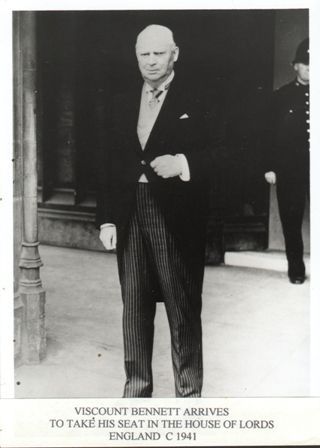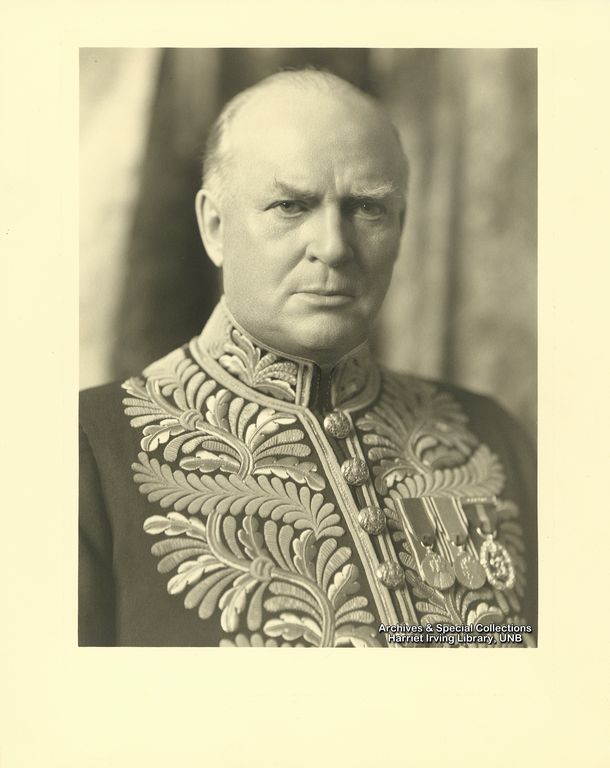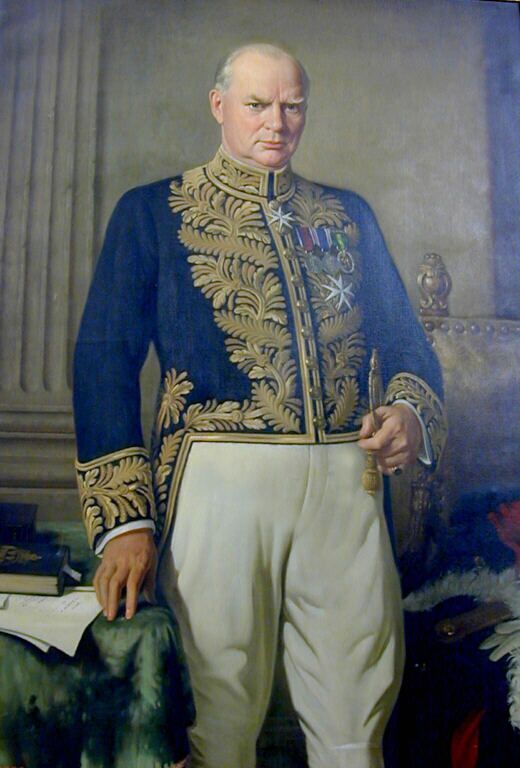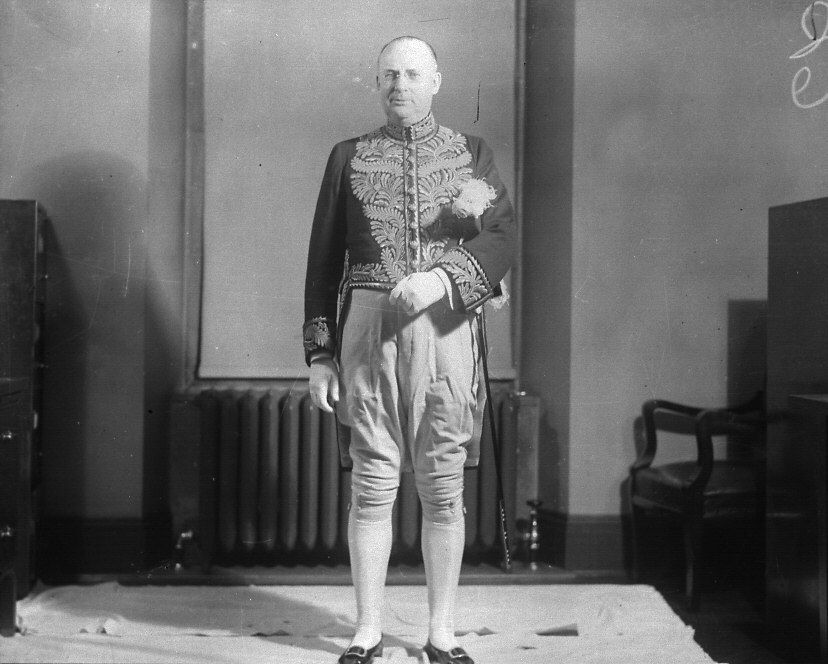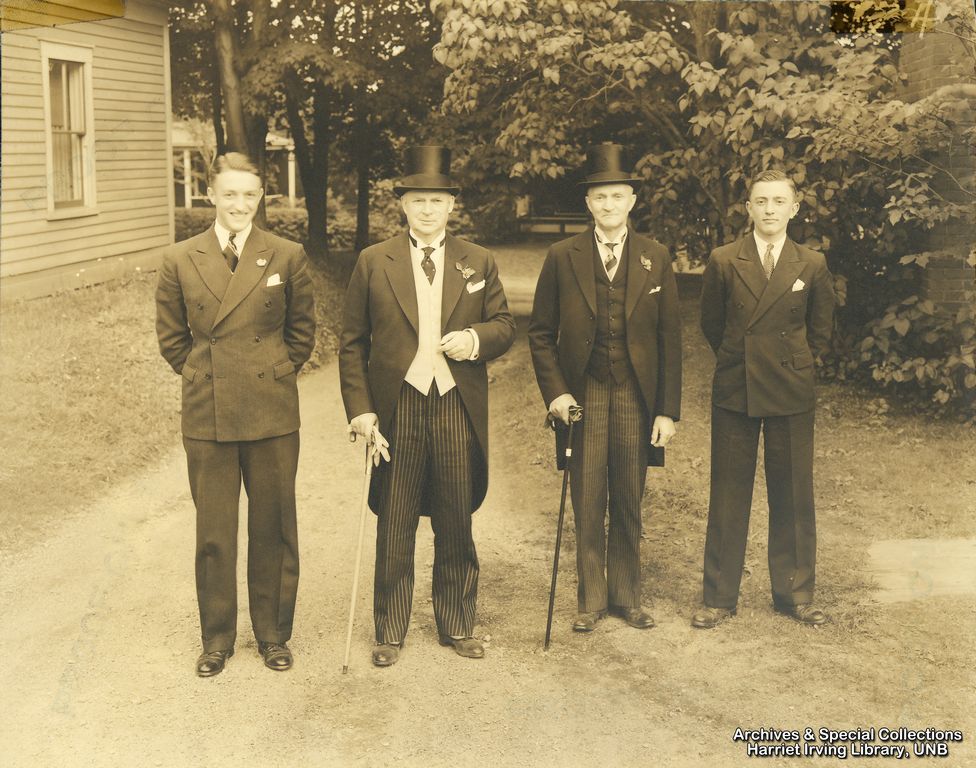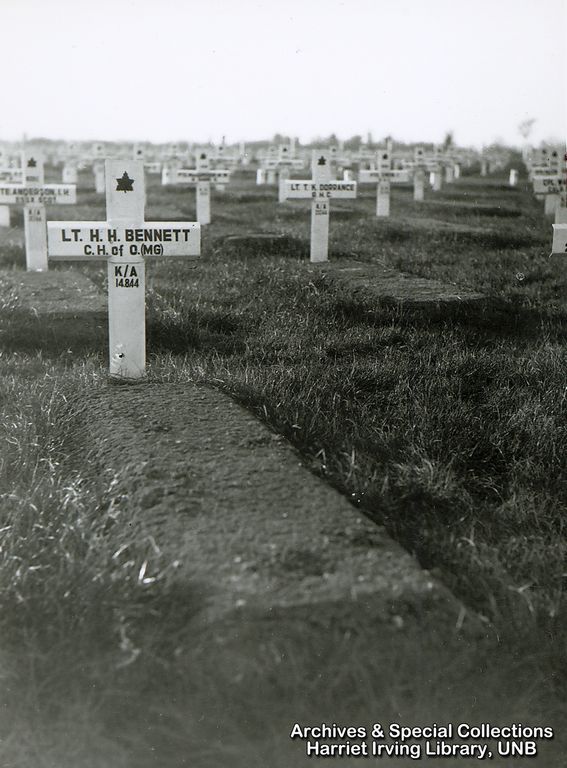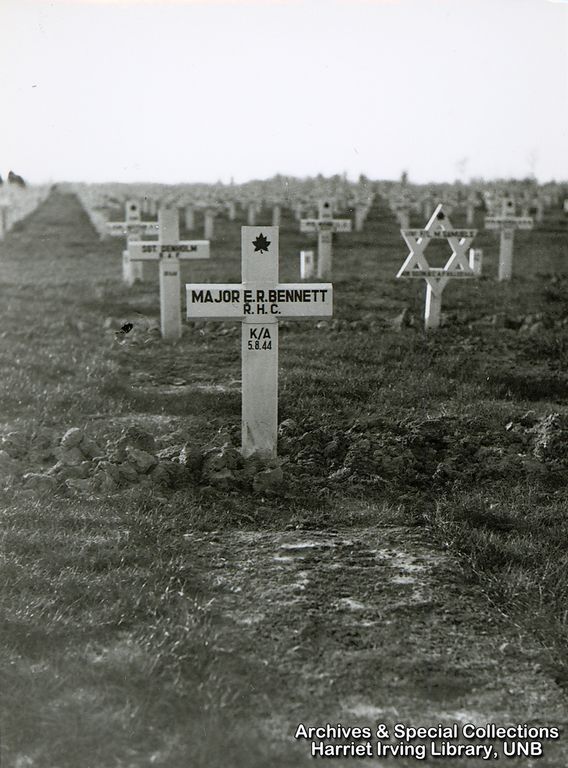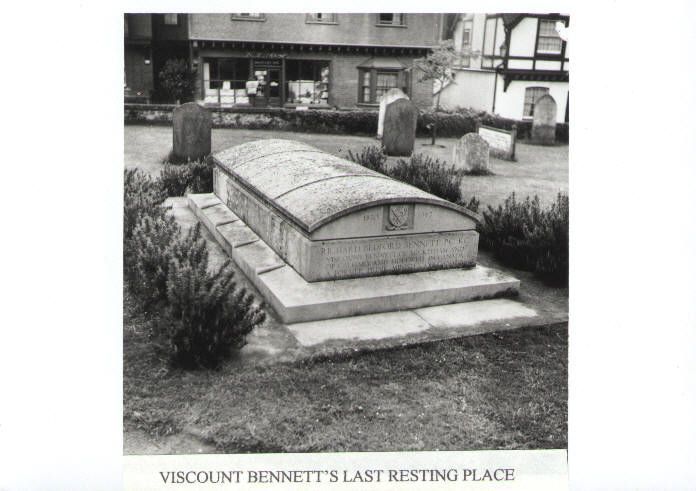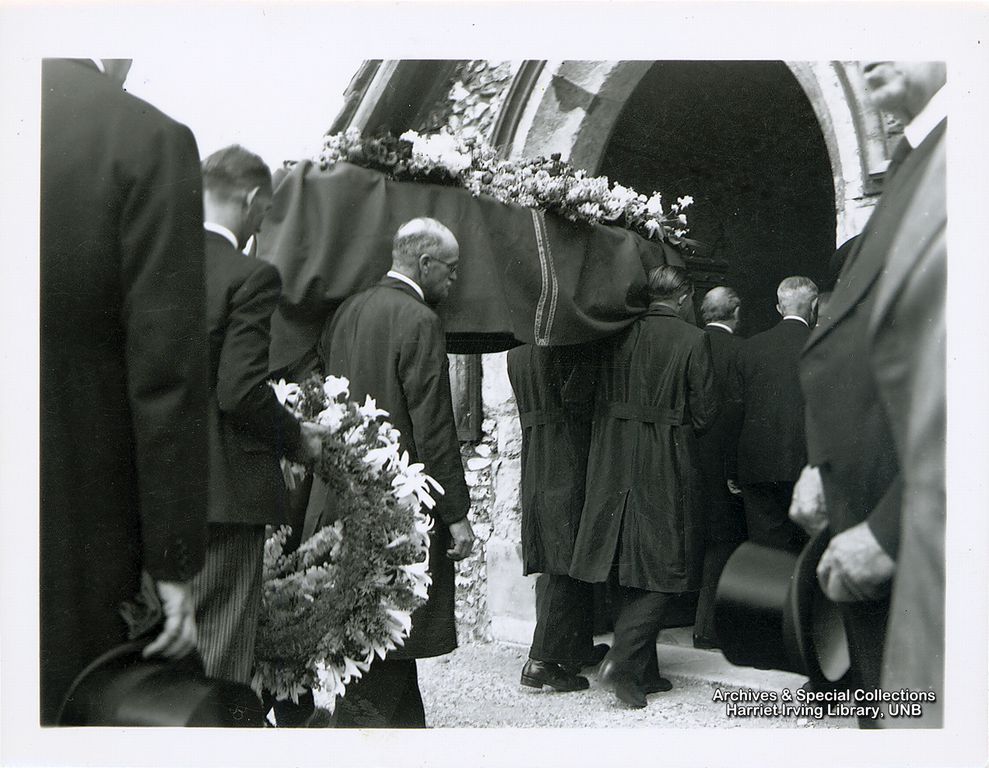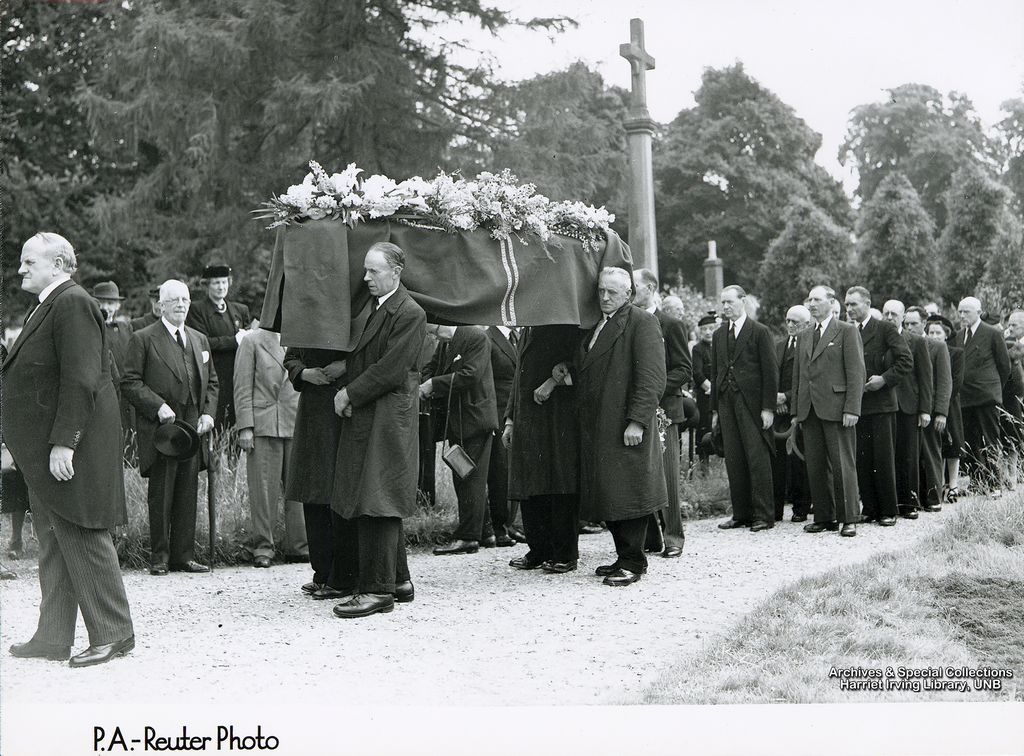Lord Beaverbrook approached his friend and colleague, Prime Minister Winston Churchill, and asked if he would grant R.B. a peerage and appoint him to the House of Lords. R.B.'s service as a Canadian prime minister, his personal generosity through his life to worthy causes, the wealth and jobs that he had created and his notable work in the British war effort were all used as examples to help persuade Churchill. He agreed, however, he needed to follow protocol and ask for the blessing from the current Canadian Prime Minister, King.
The practice of honouring Canadians with peerages had stopped in 1919, but was reinstated by R.B. in 1934. With his election in 1935 King reversed the decision. Churchill, however, was a hard person to say no to. Eventually King relented and made an exception to his own rule. R.B. was elevated to the House of Lords in June of 1941 and became 1st Viscount Bennett, of Mickleham, in the County of Surrey and of Calgary and Hopewell, in the Dominion of Canada.
R.B. soon became a well respected member of the upper chamber, attending sessions as often as most. The eloquence of delivery and message content of his speeches in the House of Lords have drawn much attention as of late and have been compiled into a book.
Author John Boyko says it best:
"He was an exceedingly generous man who had made charitable giving a part of his life even before he had earned his wealth. His well-deserved reputation for selfless philanthropy resulted in his constantly being asked to support one cause or another, be it a symphony orchestra or a little girl in need of an operation. He once told a Calgary audience that he received letters every day asking for money. On a typical week he was asked for $10,000."
He endowed numerous scholarships, gave exceedingly generous gifts to universities for construction of buildings, faculty chairs and professorships, benefited numerous hospitals and children's homes, guaranteed bank loans for budding businesses, assisted specific churches, and the list goes on. He even saw to it that from the day he took office as prime minister, any child born in Canada and christened with the name Richard Bedford would receive an engraved Birks silver mug.
On a day in March of 1943, R.B. called Alice Millar, his long time personal secretary who moved to Juniper Hill shortly after R.B. did, to his study to take notes. Again, from John Boyko:
"He dictated a long memorandum explaining that he wanted all his remaining stocks, bonds, and shares to be sold and, except for his home, all assets of any kind to be liquidated. He then outlined more donations and gifts that he would like made in his name. He instructed her that there must be no publicity regarding any of the gifts. He wanted no newspaper coverage or brass plaques. The list was extensive."
In the later spring of 1944, R.B. welcomed his brother Ronald and his two sons, Major Edwin Ronald Bennett and Lieutenant Henry Harrison Bennett, to Juniper Hill.
He was proud of the decision his nephews made to serve in the Canadian army. Just weeks later R.B. was saddened to hear that both of his nephews were killed in action at Normandy.
R.B. continued to play the part of a country gentleman, but he was slowing down quickly.
On June 11, 1947, he attended the City of London lunch for Princess Elizabeth. He spoke with the future queen briefly when she presented him with the City of London's Medal of Freedom for his work during the war. Two weeks later he appeared as lead counsel before Westminster's Judicial Committee of the Privy Council, representing the Canadian Bankers Association. After the arguments concluded, but before the final decision was made, R.B. returned to Juniper Hill. The next day Beaverbrook paid R.B. a short visit to check on him and planned to return the next day. That evening R.B. retired to his room as usual and wished his long serving butler, Mr. Epps, a good night.
Mr. Epps found R.B. the next morning in the bathtub. It was later confirmed by Dr. Thomas Cotton that the cause of death was auricular fibrillation. His heart simply stopped beating. It was June 27, 1947.
R.B. was buried in St. Michael's Churchyard on June 30 with a simple private service. He is one of only two former prime ministers of Canada not accorded a full state funeral. He is the only deceased Canadian prime minister not buried in Canada. A memorial service was held on July 4th at Westminster Abbey in London where many dignitaries and world government representatives, including the king and queen, paid their respects. Canada's Prime Minister King was conspicuous by his absence.
Bruce Hutchison from the Calgary Herald wrote in September 1935, "Mr. Bennett should write a book.... Then, perhaps, history would understand him, for his public record will not reveal him.... The interesting, the unique thing, is not what Bennett has done or not done, but Bennett himself. We may look on greater men, but not on his like again."
